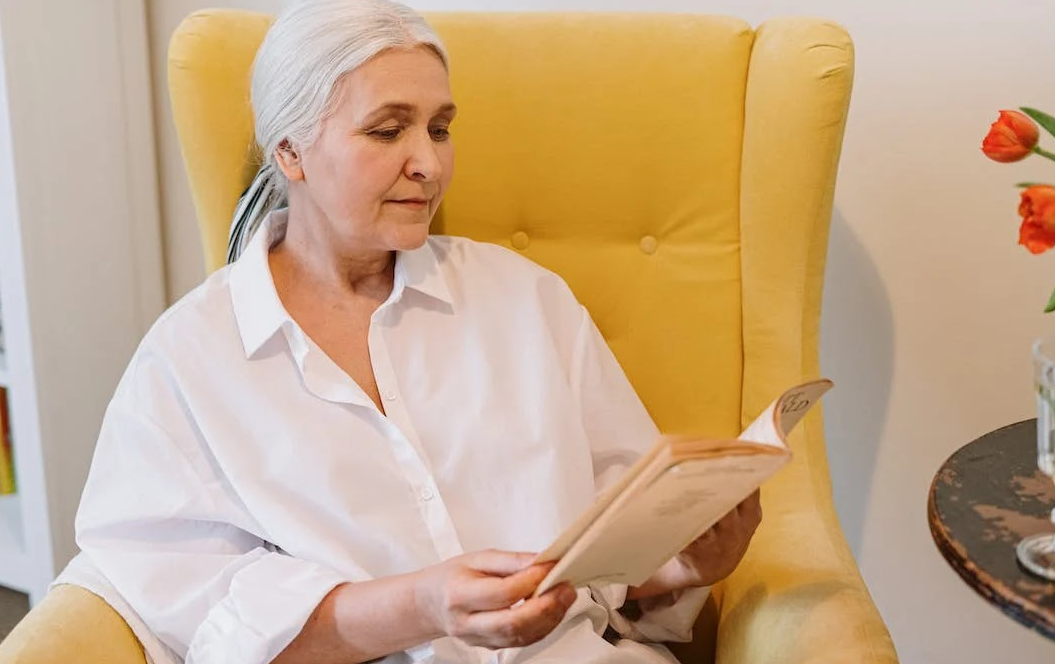Amelia Grant
What Seniors Should Know About Age-Related Macular Degeneration (AMD)

Most senior citizens have heard about age-related macular degeneration (AMD). The likelihood of AMD as one ages is a reality, but knowing the facts might help alleviate anxiety about this frequent eye illness.
What Is AMD?
The macula, located in the retina's center, is used to help humans read fine print, do needlework, and do other jobs that require precise focus. AMD is a degenerative eye disease that affects this part of the eye. There are two forms of AMD - dry AMD and wet AMD.
According to Retina International, Dry AMD accounts for 90% of all AMD and occurs when yellow deposits called drusen grow up on the macula. This happens when a layer of photoreceptor cells in the retina begins to deteriorate and dies. As a result, our vision becomes distorted, especially when we need to focus on little objects or perform detailed tasks. These deposits can exist without causing AMD, but they can raise the risk of dry AMD, especially if they are soft and big. Fortunately, the dry form of AMD does not usually require the affected person to stop reading.
According to Retina International, the wet type of AMD accounts for only around 10% of AMD cases, yet the vision loss it causes can be devastating. Wet AMD develops when aberrant blood vessels form in the choroid, a thin layer of cells in the macula. Wet AMD eventually causes blood and protein leakage, resulting in more severe visual distortion than dry AMD. If these blood vessels create scar tissue, the person may lose central vision permanently.
Understanding the Dangers and Symptoms of AMD
People in their 60s and 70s are most likely to acquire AMD. While doctors are unsure whether AMD is genetic, it does run in families, particularly first-degree relatives (a person's mother, father, and siblings). It is particularly critical for people with a family history of AMD to inform their eye doctors.
Wet AMD symptoms include visual distortion (straight lines seem as waves), blurred vision, and difficulty seeing details (up close or far away). Advanced kinds of wet AMD are more dangerous and include hallucinatory visions. Because AMD does not cause discomfort as a warning indicator, seniors should never neglect routine eye checkups.
Seniors frequently mix AMD with other eye illnesses, such as cataracts and glaucoma, as well as a diabetes-related condition known as diabetic retinopathy. These disorders, however, are not connected with AMD, do not raise the chance of developing AMD, and do not worsen AMD if it already exists.
Taking Care of AMD
The course of dry AMD differs widely across individuals. It also grows slowly over time and might be stable between routine eye tests. Although most people with severe AMD become legally blind, those with dry AMD often can work around the vision loss by learning to adjust to their residual eyesight. Wet AMD advances faster than dry AMD and is more likely to result in severe vision loss.
AMD Treatment
There is presently no cure for AMD; however, several therapies can help slow the course of the problem. Photodynamic treatment, or PDT, is used to treat wet AMD. Light-sensitive medication is injected into the bloodstream as part of this treatment. Laser photocoagulation is another therapy option for wet AMD. Doctors can decide whether or not a patient is a good candidate for these treatments and may prescribe extra medications to increase their efficacy.
Can AMD be avoided? Fortunately, there are several things seniors may take to help prevent AMD.
- You should not smoke;
- Improve your diet by eating dark leafy green vegetables like spinach, more seafood, and nuts and fruits daily. Doctors also advise cutting out processed carbs;
- Add supplements to your diet (consult their doctor for a recommendation) and a fish oil supplement if your diet lacks sufficient fish protein. (Enteric-coated fish oil has no fishy aftertaste and does not cause belching);
- Exercise frequently;
- Maintain your cholesterol, blood pressure, and weight.;
- Wear sunglasses that block UV and blue-ray radiation, the kind of sunlight that might harm your eyes;
- Maintain frequent eye checkups.

